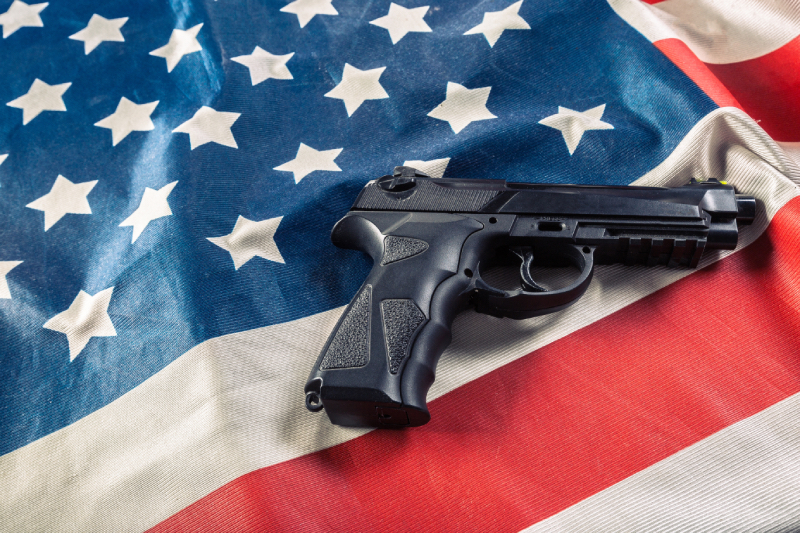Federal Pathway for Second Amendment Rights Restoration Reopens After 32-Year Hiatus
Author: Nick Miles | Publish Date: Mar 23, 2025
On March 20, 2024, the Department of Justice (DOJ) implemented an interim final rule with the modest title "Withdrawing the Attorney General's Delegation of Authority." Despite its unassuming name, this measure represents a significant shift in federal firearms policy by revitalizing a long-dormant legal provision that enables individuals prohibited from possessing firearms to petition for the restoration of their Second Amendment rights—the first such opportunity since 1992.

The rule took immediate effect upon publication, with the DOJ accepting public comments until June 18.
Federal law under 18 U.S.C. 922(g) currently prohibits 13 categories of individuals from possessing or receiving firearms, with most bans designed to be permanent. The most common prohibition applies to those "convicted in any court of... a crime punishable by imprisonment for a term exceeding one year"—which under ATF's interpretation includes not only felonies but also certain misdemeanors carrying potential sentences exceeding two years.
While federal law theoretically lifts these restrictions for convictions that have been "expunged... or set aside or for which a person has been pardoned or has had civil rights restored," court precedents have substantially limited the effectiveness of state-level restoration procedures. As a result, individuals whose rights have been restored at the state level may still face federal prohibitions, preventing them from purchasing firearms through licensed dealers or obtaining concealed carry permits.
The Gun Control Act (GCA) originally provided an alternative path through 18 U.S.C. 925(c), allowing prohibited persons to petition "the Attorney General for relief from the disabilities imposed by Federal laws." This provision empowers the Attorney General to grant relief when satisfied that the applicant "will not be likely to act in a manner dangerous to public safety and that the granting of the relief would not be contrary to the public interest."
Previously administered by the ATF under delegated authority, the program processed 13,790 relief investigations between 1981 and 1991. Of these, approximately 40.6% (5,598) were approved and 25.4% (3,498) were denied. The remaining applications were abandoned, found ineligible, or involved individuals still on parole or probation.
In 1992, Congress effectively suspended the program by adding an appropriations rider that prevented ATF from using funds to process these petitions—a restriction that has been renewed annually ever since.
The Trump administration has now circumvented this obstacle by determining that the Attorney General can assign this responsibility to another DOJ component not subject to the funding restriction. In fact, the administration has already begun considering petitions through the Office of the Pardon Attorney.
This new rulemaking formally revokes ATF's jurisdiction over this function, stating in its preamble that the Department "anticipates future actions, including rulemaking consistent with applicable law, to give full effect to 18 U.S.C. 925(c) while simultaneously ensuring that violent or dangerous individuals remain disabled from lawfully acquiring firearms."
The National Rifle Association has consistently advocated that individuals deemed safe enough to live freely in society should be presumptively able to exercise all fundamental rights, including Second Amendment rights. The current system can impose lifetime firearms bans for single non-violent incidents, even when no jail time was served.
Several federal court decisions following the Supreme Court's 2022 NYSRPA v. Bruen ruling have found certain applications of federal prohibited person laws unconstitutional, noting the absence of historical precedent for permanently disarming non-dangerous individuals.
Public comments can be submitted through Regulations.gov until the June deadline. The DOJ emphasizes that petitions will be evaluated individually, not as a blanket restoration for violent offenders.
This approach isn't unprecedented—the NICS Improvements Act of 2007 uses similar standards for restoring rights to those prohibited due to mental health issues, and the original relief program operated successfully from 1968 to 1992.
A 1992 report critical of the relief program examined 1,781 individuals granted relief between 1985 and 1990, finding only 47 were later re-arrested—and of those with known dispositions, only 4 cases (0.2%) involved interpersonal violence.
The NRA has expressed support for the Trump Administration's action to protect Second Amendment rights and plans to submit formal comments supporting the interim final rule.